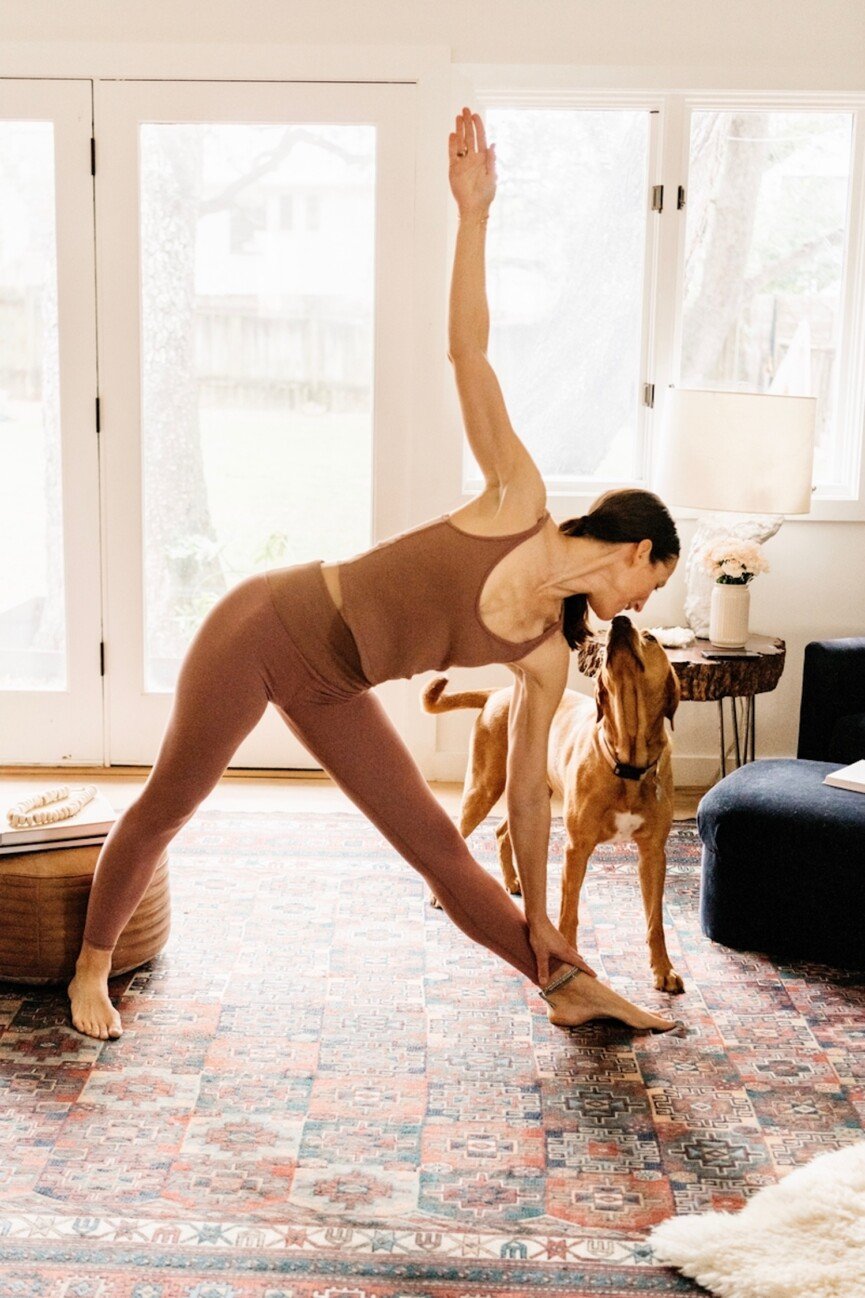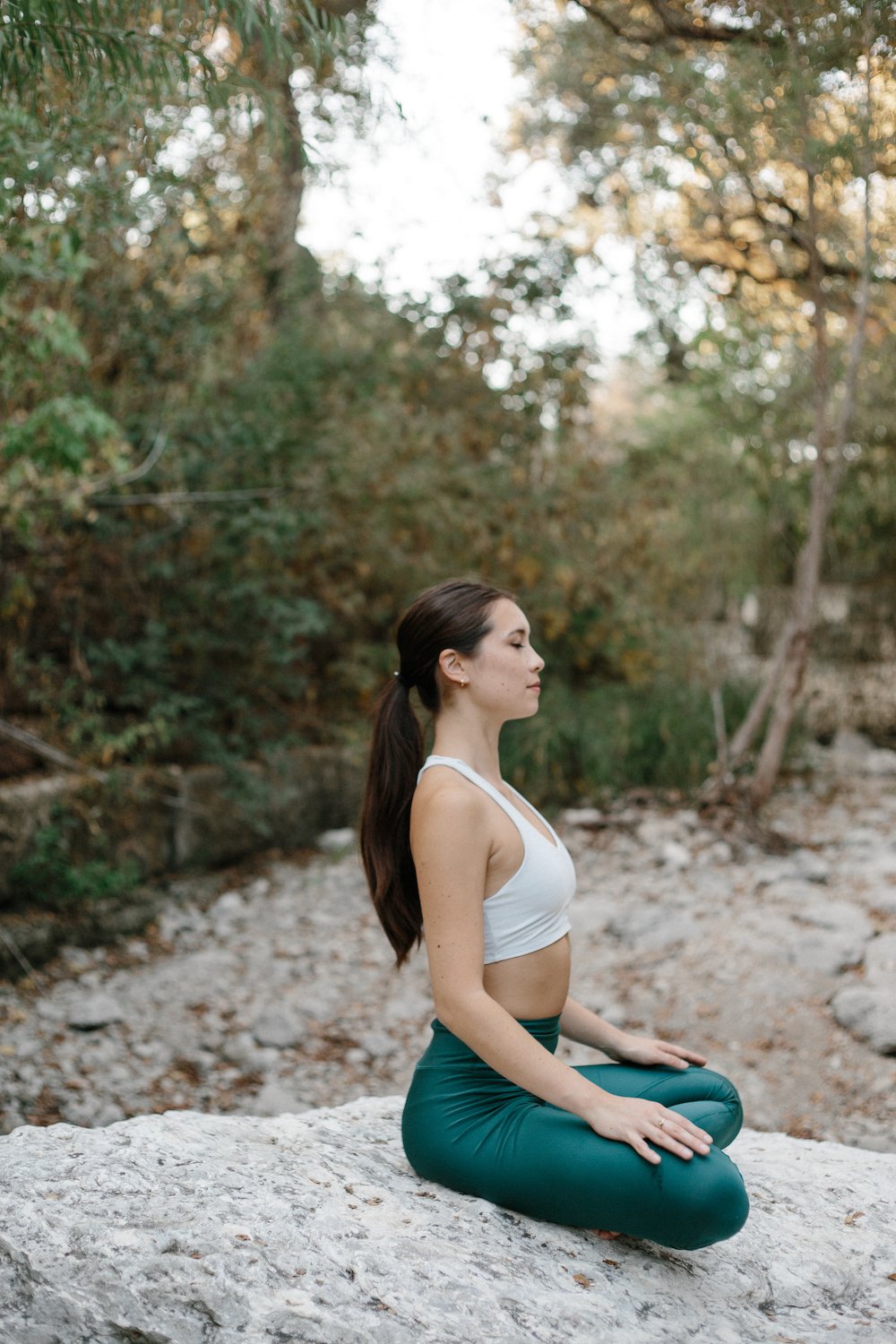On paper, I am a nutrition consultant. But what you don’t know is that wellness used to control my life. It dictated what I ate, how I moved, and even how I measured my worth. A decade later, I realized that the same routines meant to keep us grounded can quietly become the problem. For years I convinced myself that I was disciplined. In reality, I was micromanaging my well-being to the point of exhaustion. My “discipline” was really just control in disguise. And little by little, it took away my joy. Part personal story, part cautionary tale, this article is about how I finally found a version of wellness based on flexibility and ease.

Where it all began
My journey to health started innocently enough. When I was in my early 20s, I discovered sculpting yoga (yoga heated with weights) and practiced every day. At the same time, I was juggling heartbreak, college classes, a part-time job, and everything that comes with being in a sorority. To add fuel to the fire, I came across blogs about “healthy living”. Immersed in diet culture, I was told that gluten, dairy, and sugar were everything from inflammatory to toxic. So naturally, I cut them off. Overnight, I began pursuing the limited version of wellness I was seeing online. From the outside it looked like dedication. Inside, it was an obsession.
The label trap
I’ve come a long way since then, but what still bothers me is how often we’re told we need a label to feel legitimate (allergies and medical conditions aside). Vegan. Paleo. Gluten free. Dairy free. Keto. Etc. But health is not a label. it’s a relationship you build with yourself. One that, ideally, is rooted in flexibility and bio-individuality.
At the end of the day, mastering wellness is not the goal. is to feel at home in your body. Because when you finally stop chasing trends and start choosing what really makes you feel good, that’s when true well-being begins.
Health is not a label. it’s a relationship you build with yourself.
When wellness starts to feel like work
It took me years to realize how the pursuit of health was quietly draining me. I would feel guilty if I skipped a workout, anxious if I ate dessert, and frustrated if I couldn’t get my steps in. I thought structure meant success, but what I really craved was peace of mind. Discipline has value (it builds consistency and trust!), but when it becomes rigid, it stops serving us. True well-being does not come from control. It comes from listening more and forcing less.
The comparison trap
Unfortunately, social media doesn’t make it any easier. The internet is full of impeccable morning routines, spotless refrigerators, and carefully curated “what I eat in a day” videos. It’s easy to think that well-being should be: orderly, predictable and perfect. But unless you recognize your unique needs and rhythms, those routines can become more of a burden than a benefit. In other words, wellness is not a one-size-fits-all formula. It’s a practice and it has to evolve with you.
Learning to loosen your grip
So how did I loosen my grip? I started asking myself these questions: Does this seem supportive or restrictive to me? Am I making this decision out of confidence or fear? Am I honoring my body or pushing it? Little by little I began to let go. I began approaching exercise from a place of empowerment. Food became fuel to build muscle. The most important thing is that I changed “I have to” to “I have to.” And suddenly, well-being began to be joyful again. I now approach my habits as a rhythm. It is not a checklist. Remember, flexibility is health. Structure and spontaneity can coexist.
Reflection prompts
If your current wellness routine seems too rigid, try asking:
- Do I choose my routine out of self-confidence or fear of not being enough?
- What would well-being be like if it came from curiosity and not control?
- Do my habits meet my current needs or someone else’s expectations?
Don’t Underestimate How Much Clarity A Few Honest Questions Can Bring.
Taking the time to ask yourself these questions is the first step to tuning in. When you slow down and listen, you begin to notice what your body is trying to tell you (beyond rules, routines, and “shoulds”).
Our bodies talk to us constantly, but they need space to be heard. They let us know when we’re tired, hungry, overstimulated, or craving connection. But when we are obsessed with external plans, we stifle that wisdom. Instead of outsourcing your intuition to an influencer or “wellness expert,” remember that the best expert is in your body. you.
What is wellness like for me now?
Today, I still love my rituals, but I keep them light. I plan meals for convenience, not control. I move because it feels good, not to earn food or approval. I take tailored supplements that truly support my deficiencies, not because they’re trendy. The most important thing is that I allow myself to rest. To enjoy pizza. Skip the HIIT class. Living my life without constantly qualifying my choices. And here’s the irony: I feel healthier now than ever when I was looking for perfection.
A kind reminder
If your wellness routine has started to feel heavy, you’re not failing. Most of us have to unlearn the idea that health is gained through rigidity. You don’t need to earn your worth through discipline and you don’t need a label to belong. Wellness should extend your life, not reduce it. So here’s your invitation: relax the rules. Add more joy. Trust your body. Let your routine evolve with you. Because perhaps the healthiest thing you can do is just let go.

Edie Horstman
Edie is the founder of nutritional coaching company Wellness with Edie. With her expertise and experience, she specializes in women’s health, including fertility, hormonal balance, and postpartum wellness.






